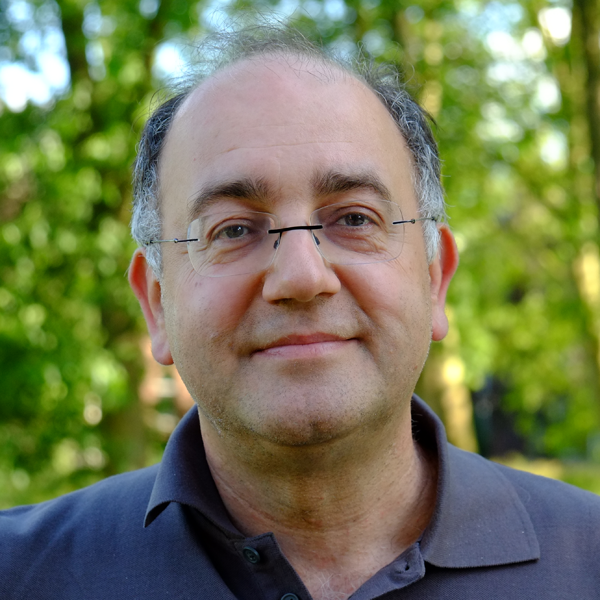
Sep 13, 2019 | Non categorizzato
To heal the employment crisis we need a new economy, and to build one we need to give young people space and a voice. More than anyone, they understand what’s new and how to carry it out. This is one of the goals of the “Economy of Francis” event to be held in Assisi in 2020. In May 2019, unemployment went down in Europe. According to Eurostat, it went down to 7.5% in the 19 countries of the Eurozone and to 6.3% in the 28 countries of European Union. This still contrasts with the high cost of youth unemployment, and despite the improvement in the numbers, this still calls for more effective policy. We discussed it with Luigino Bruni, economist at Lumsa University in Rome and scientific director of the committee organising “The Economy of Francesco”, an event called for by the pope and dedicated to young economists and entrepreneurs from all over the world, to be held in Assisi from 26–28 March 2020. 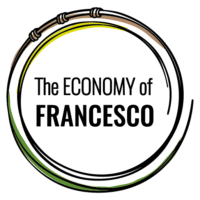 What do you think we can expect from this event? I think there will be great leadership by young people both in thought and practice. They will share their ideas about the world, which they are already changing, concerning the environment, the economy, development, poverty. It will not be a conference, but the start of a process, although one with a slow pace that allows us to think and ask ourselves, for example, in St. Francis’ homeland and footsteps, what it means to build a new economy, and who the marginalised of today really are. It will be primarily a moment in which young people draw up a solemn pact with Pope Francis, assuring him of their commitment to change the economy. This will be the heart of the event. After all, young people have clear ideas about… Young people make things interesting. They are the first to react to changes, because they’re the ones who most understand them. There are so many valuable experiences throughout the world in business and start-ups. Young people think about the economy differently, but the adults – who have the power and university chairs – are not able to listen and give them space. Their thinking is 20 years behind the times, while young people have something to say. In Assisi they will be the ones to speak; the adults will make themselves available to support and listen.
What do you think we can expect from this event? I think there will be great leadership by young people both in thought and practice. They will share their ideas about the world, which they are already changing, concerning the environment, the economy, development, poverty. It will not be a conference, but the start of a process, although one with a slow pace that allows us to think and ask ourselves, for example, in St. Francis’ homeland and footsteps, what it means to build a new economy, and who the marginalised of today really are. It will be primarily a moment in which young people draw up a solemn pact with Pope Francis, assuring him of their commitment to change the economy. This will be the heart of the event. After all, young people have clear ideas about… Young people make things interesting. They are the first to react to changes, because they’re the ones who most understand them. There are so many valuable experiences throughout the world in business and start-ups. Young people think about the economy differently, but the adults – who have the power and university chairs – are not able to listen and give them space. Their thinking is 20 years behind the times, while young people have something to say. In Assisi they will be the ones to speak; the adults will make themselves available to support and listen.  Why haven’t the economic recipes that have been put forward to solve the unemployment crisis been working? The data from Eurostat, the European Union’s statistics office, needs to be read with caution: the fact that European unemployment has decreased does not mean that employment has increased. In Italy, for example, there are many people who are no longer searching for work. In addition, people are working less because many contracts are for a smaller number of hours in order to give jobs to more people. Today machines are doing jobs that up until 10 years ago were carried out by people. Robots are our allies, but we need to invent new jobs, because the traditional ones are no longer able to take in enough work. The new tools end up naturally selecting workers, favouring the most competent, since there are less and less people who are able to compete with the machines. This means that less people are working and those who do are the most expert, which creates inequalities. So a social pact is necessary to make sure that everyone has access to paid jobs, creating new types of new jobs. So we need a new approach? In just a few short years we have gone through epochal change at an extraordinary pace. But the way we think and the systems we have change much slower, and this contrast is what causes a crisis. So we need to work more at a cultural, scientific and research level, because – as Pope Francis says – the world suffers from a lack of thinking that is appropriate for today.
Why haven’t the economic recipes that have been put forward to solve the unemployment crisis been working? The data from Eurostat, the European Union’s statistics office, needs to be read with caution: the fact that European unemployment has decreased does not mean that employment has increased. In Italy, for example, there are many people who are no longer searching for work. In addition, people are working less because many contracts are for a smaller number of hours in order to give jobs to more people. Today machines are doing jobs that up until 10 years ago were carried out by people. Robots are our allies, but we need to invent new jobs, because the traditional ones are no longer able to take in enough work. The new tools end up naturally selecting workers, favouring the most competent, since there are less and less people who are able to compete with the machines. This means that less people are working and those who do are the most expert, which creates inequalities. So a social pact is necessary to make sure that everyone has access to paid jobs, creating new types of new jobs. So we need a new approach? In just a few short years we have gone through epochal change at an extraordinary pace. But the way we think and the systems we have change much slower, and this contrast is what causes a crisis. So we need to work more at a cultural, scientific and research level, because – as Pope Francis says – the world suffers from a lack of thinking that is appropriate for today.
Claudia Di Lorenzi
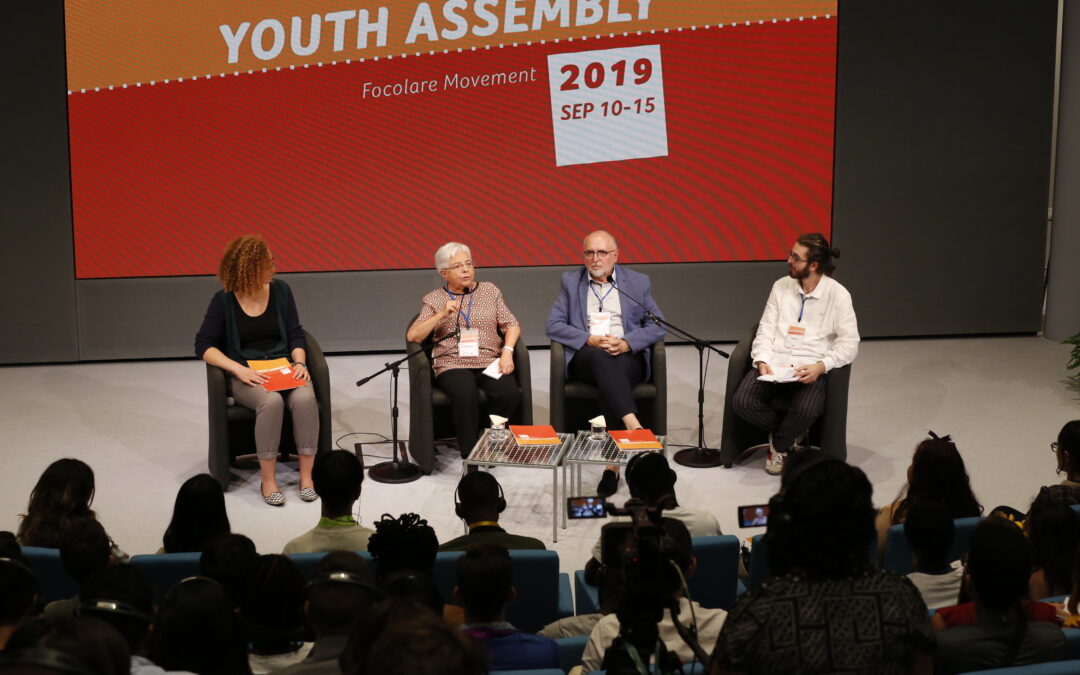
Sep 11, 2019 | Non categorizzato
With these three words the president of the Focolare opened the movement’s Youth Assembly which runs from 10 to 15 September. 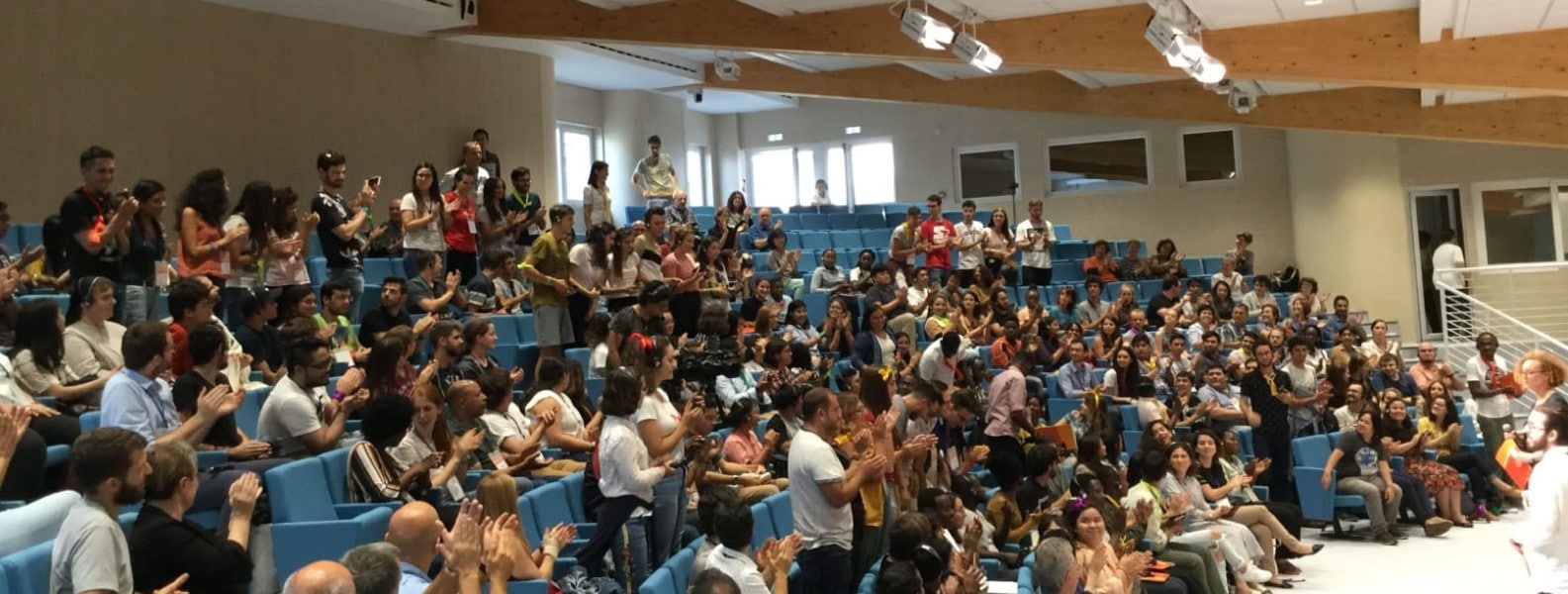 As the 190 delegates were being introduced to Focolare President Maria Voce and Co-President Jesús Morán, the overwhelming impression was of a parliament for the under-30s, serving not a single nation but the whole world. These young members of the Focolare Movement from 67 different countries have convened in Castel Gandolfo, near Rome, Italy, for the Foocolare’s first Youth Assembly of Gen, young religious men and women, seminarians, together with youth active in the Parish and Diocesan movements of the Focolare. “We’re not only here to organize and plan, but mainly to get to know each other and communicate what is actually motivating us, what’s at the heart of our choice to work towards a more united world,” explained one of the Assembly team.
As the 190 delegates were being introduced to Focolare President Maria Voce and Co-President Jesús Morán, the overwhelming impression was of a parliament for the under-30s, serving not a single nation but the whole world. These young members of the Focolare Movement from 67 different countries have convened in Castel Gandolfo, near Rome, Italy, for the Foocolare’s first Youth Assembly of Gen, young religious men and women, seminarians, together with youth active in the Parish and Diocesan movements of the Focolare. “We’re not only here to organize and plan, but mainly to get to know each other and communicate what is actually motivating us, what’s at the heart of our choice to work towards a more united world,” explained one of the Assembly team. 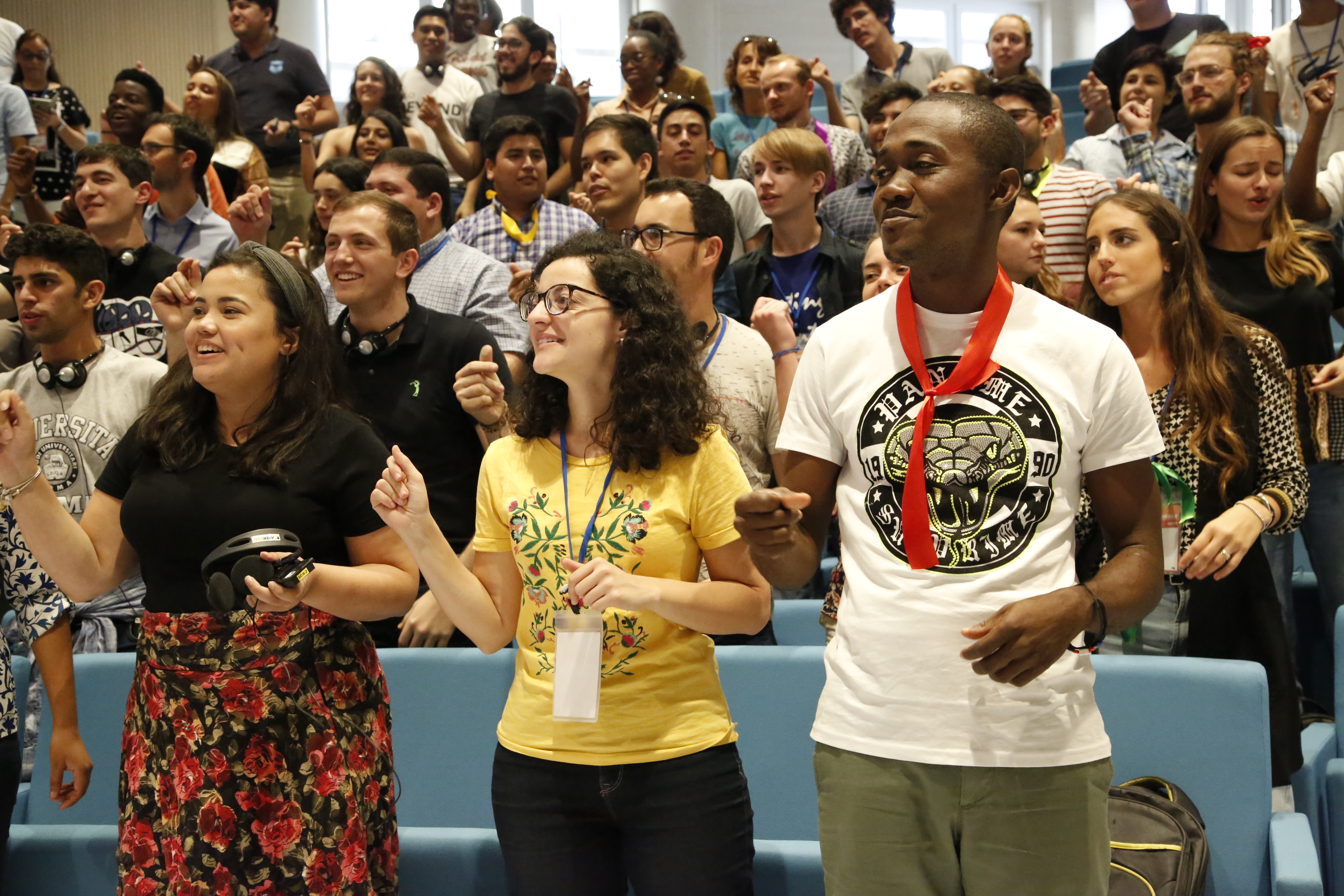 The delegates are drawn from different geographical, cultural and religious backgrounds. They are active in areas such as justice and peace, disarmament, humane economy, environmental campaigning, dialogue between religions and ethnic groups. Many have been involved in challenging summer projects such as the Gen Congress in Amman, Jordan for young Focolare members in different nations of the Middle East and beyond; another in Oceania; workshops tackling legal and economic inequalities, as well as summer-camps organized by the Parish and Diocesan Movements. The Assembly is designed to promote sharing, learning and planning, drawing on the support of experts. It is distinctly “hands-on”. For example tackling issues of identity and life choices (with Fr Vincenzo Di Pilato); how to be protagonists and effective leaders (with Jonathon Michelon); witnessing and participation (with Sr Alessandra Smerilli). The Catholic Church’s recent synod dedicated to youth led to the popularly-received “Christus Vivit” document, which will also be discussed during the workshops (with Francisco Canzani).
The delegates are drawn from different geographical, cultural and religious backgrounds. They are active in areas such as justice and peace, disarmament, humane economy, environmental campaigning, dialogue between religions and ethnic groups. Many have been involved in challenging summer projects such as the Gen Congress in Amman, Jordan for young Focolare members in different nations of the Middle East and beyond; another in Oceania; workshops tackling legal and economic inequalities, as well as summer-camps organized by the Parish and Diocesan Movements. The Assembly is designed to promote sharing, learning and planning, drawing on the support of experts. It is distinctly “hands-on”. For example tackling issues of identity and life choices (with Fr Vincenzo Di Pilato); how to be protagonists and effective leaders (with Jonathon Michelon); witnessing and participation (with Sr Alessandra Smerilli). The Catholic Church’s recent synod dedicated to youth led to the popularly-received “Christus Vivit” document, which will also be discussed during the workshops (with Francisco Canzani). 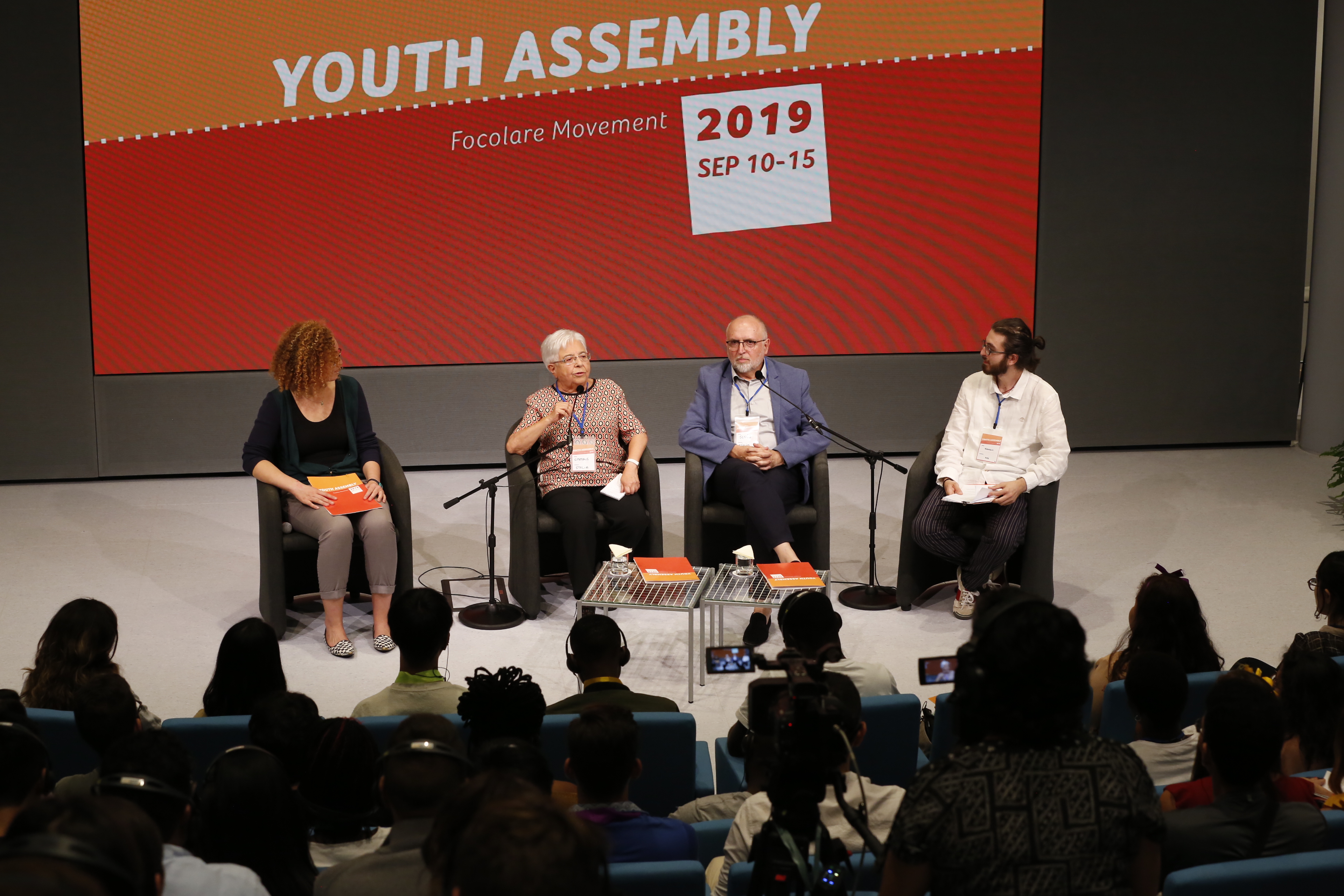 To guide all this activity, the Focolare President proposed three key words: unity, courage, communication. Unity – Maria Voce encouraged the young people to “forget” where and what they come from, in order to be able to live complete mutual love and so experience the unity that comes from this. Courage – “I expect you to have such courage. I also expect your courage to test and challenge the rest of us”. Inviting them to speak out and share, she encouraged them not to shy away from making criticisms, but always to express them in “a constructive spirit”. Finally, she urged them to communicate the charism of unity. “You must be prepared to give what you have received to the new generations. This communication can only happen through people who live the spirituality, who want this charism and who then communicate it”. Everything covered during the Assembly will be summarized in a final document containing the contributions and concerns of the young generation of the Focolare as they seek ways of working ever more closely together for their shared goal.
To guide all this activity, the Focolare President proposed three key words: unity, courage, communication. Unity – Maria Voce encouraged the young people to “forget” where and what they come from, in order to be able to live complete mutual love and so experience the unity that comes from this. Courage – “I expect you to have such courage. I also expect your courage to test and challenge the rest of us”. Inviting them to speak out and share, she encouraged them not to shy away from making criticisms, but always to express them in “a constructive spirit”. Finally, she urged them to communicate the charism of unity. “You must be prepared to give what you have received to the new generations. This communication can only happen through people who live the spirituality, who want this charism and who then communicate it”. Everything covered during the Assembly will be summarized in a final document containing the contributions and concerns of the young generation of the Focolare as they seek ways of working ever more closely together for their shared goal.
Stefania Tanesini
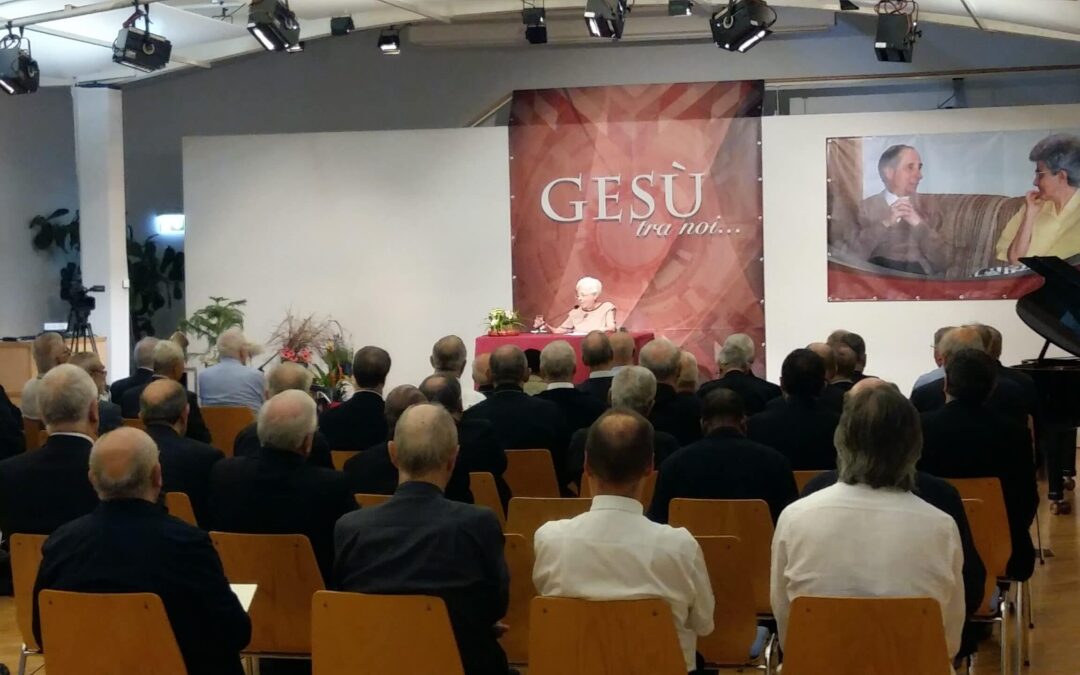
Sep 10, 2019 | Non categorizzato
In Austria 61 Catholic Bishops who are friends of the Focolare Movement gathered together for an international meeting. The Church’s “wounds” and the challenges faced by Christian communities today were at the heart of their reflections in a meeting enriched by spiritual insights and sharing fraternal life. 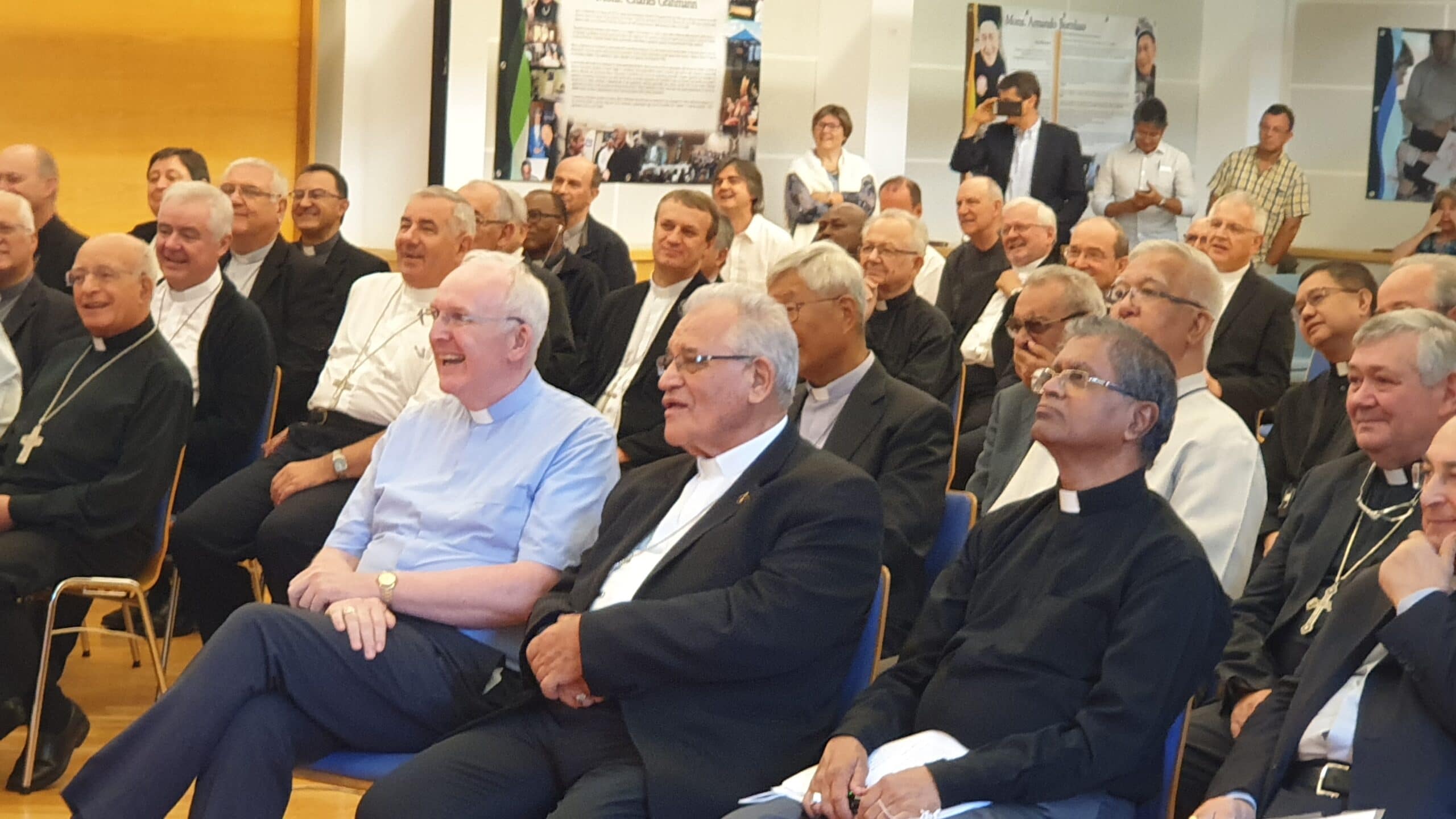 A kind of tsunami has struck the Church as a institution in recent years. The revelation of scandalous abuses has shaken the credibility of the Church to its very core, a Church that for some time has seemed to be in decline in many traditionally Christian countries. And this is not the only scourge afflicting Christian communities across the world. Urbanisation, poverty, war, corruption in society and the Church itself, political and cultural pressures, all kinds of intolerances and religious fundamentalism, a lack of opportunities for development and serious risks to the environment are leaving many people hopeless and overwhelmed. These are just some of the “wounds” that 61 Bishops from four continents who know and live the spirituality of the Focolare shared when they met from 2 to 10 August near Graz in Austria. Even though they came together primarily for a meeting to deepen their spirituality and live fraternity together for a few days, they listened together to the “cry” of their people. Otherwise, how else could they be witnesses of a crucified and risen God who took on every evil and responded to it?! We must not stop at theories – they said – or give in to pessimism but go to the roots. On the Church front, individualism and clericalism were highlighted, a lack of formation and coherent witness, the need for solid spirituality and accompaniment, the need to grow in the capacity to listen and dialogue.
A kind of tsunami has struck the Church as a institution in recent years. The revelation of scandalous abuses has shaken the credibility of the Church to its very core, a Church that for some time has seemed to be in decline in many traditionally Christian countries. And this is not the only scourge afflicting Christian communities across the world. Urbanisation, poverty, war, corruption in society and the Church itself, political and cultural pressures, all kinds of intolerances and religious fundamentalism, a lack of opportunities for development and serious risks to the environment are leaving many people hopeless and overwhelmed. These are just some of the “wounds” that 61 Bishops from four continents who know and live the spirituality of the Focolare shared when they met from 2 to 10 August near Graz in Austria. Even though they came together primarily for a meeting to deepen their spirituality and live fraternity together for a few days, they listened together to the “cry” of their people. Otherwise, how else could they be witnesses of a crucified and risen God who took on every evil and responded to it?! We must not stop at theories – they said – or give in to pessimism but go to the roots. On the Church front, individualism and clericalism were highlighted, a lack of formation and coherent witness, the need for solid spirituality and accompaniment, the need to grow in the capacity to listen and dialogue. 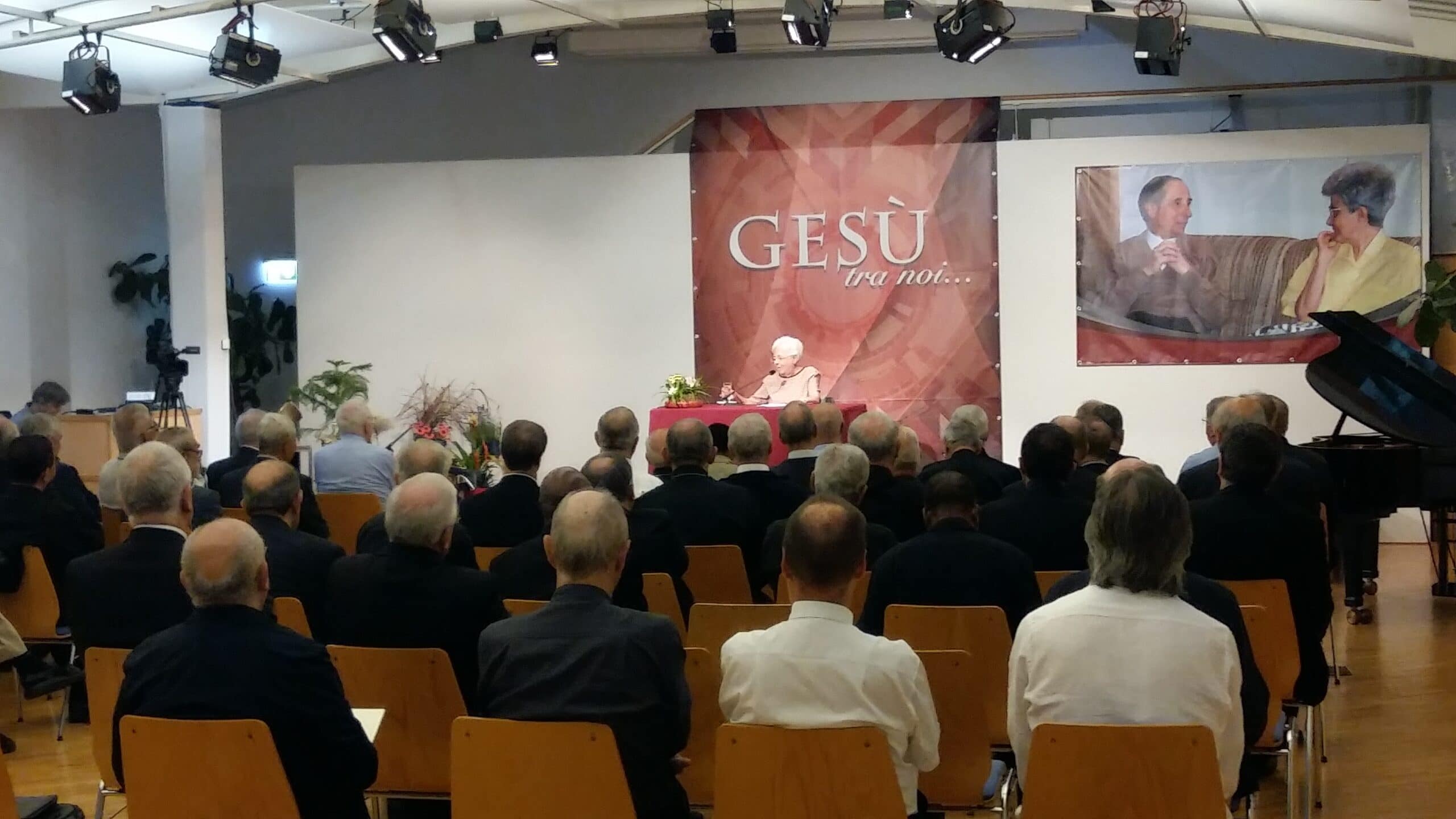 How can we respond to these challenges? Not from above, under the illusion of being able to impose solutions, but from below, following the way of Jesus who, by becoming small, becoming nothing to be a gift, took love to its very limit and in this way generated fraternity. Looking at the situation from this perspective allows us to recognize the potential for good even where, at first glance, there only seems to be evil. This is the path these Bishops want to tread in a decisive way, mindful that it is a matter – as the Apostolic Exhortation “Evangelii gaudium” recommends – of triggering processes that will only start to bear fruit over time. Nothing less is required today: being faithful to its origins, exploring new ways of being Church. With very precise paths, which include basing the proclamation and catechesis on the life of the Gospel and the communion of life; forming people in the spirituality of communion and the ecclesial and social “we”; creating “living environmental cells”; and listening to those who think differently to ourselves. “Show yourselves as a joyful group” was the wish of Pope Francis for this meeting of Bishops who are friends of the Focolare Movement. This is how it was because, by sharing sincerely with each other, they experienced God. Then everything changes at root level. Only by being can an enlightened doing be born.
How can we respond to these challenges? Not from above, under the illusion of being able to impose solutions, but from below, following the way of Jesus who, by becoming small, becoming nothing to be a gift, took love to its very limit and in this way generated fraternity. Looking at the situation from this perspective allows us to recognize the potential for good even where, at first glance, there only seems to be evil. This is the path these Bishops want to tread in a decisive way, mindful that it is a matter – as the Apostolic Exhortation “Evangelii gaudium” recommends – of triggering processes that will only start to bear fruit over time. Nothing less is required today: being faithful to its origins, exploring new ways of being Church. With very precise paths, which include basing the proclamation and catechesis on the life of the Gospel and the communion of life; forming people in the spirituality of communion and the ecclesial and social “we”; creating “living environmental cells”; and listening to those who think differently to ourselves. “Show yourselves as a joyful group” was the wish of Pope Francis for this meeting of Bishops who are friends of the Focolare Movement. This is how it was because, by sharing sincerely with each other, they experienced God. Then everything changes at root level. Only by being can an enlightened doing be born.
Hubertus Blaumeiser
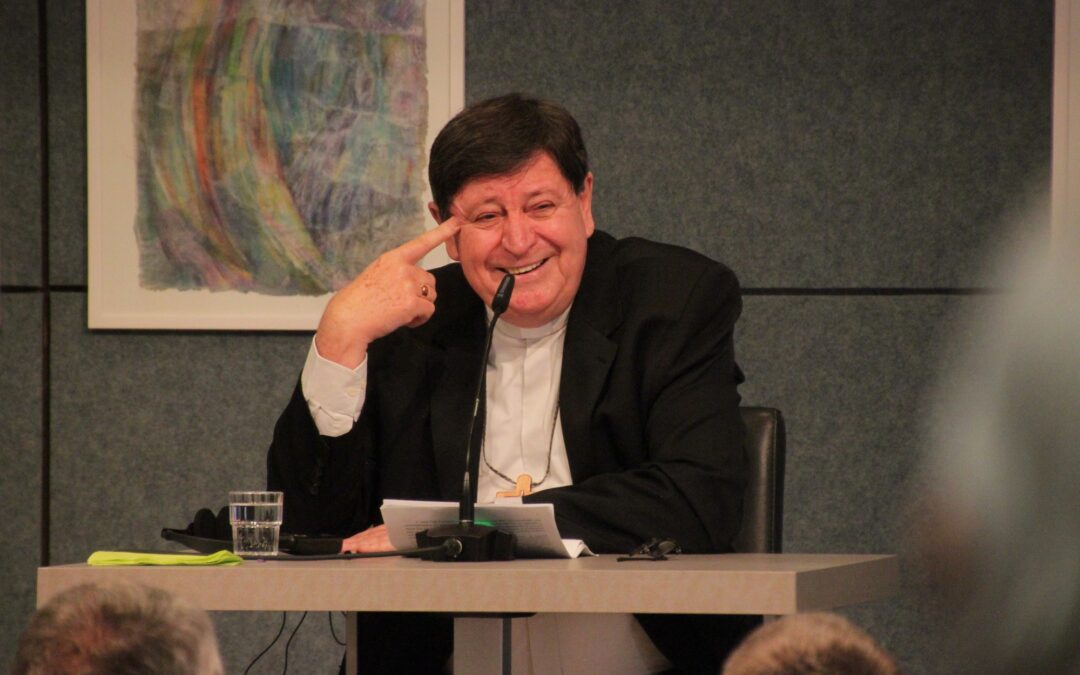
Sep 8, 2019 | Non categorizzato
Members of religious communities and movements belonging to fifty different orders, congregations and institutes gathered together in the ecumenical Focolare village of Ottmaring in Germany, 1-5 July 2019. The 100 participants were consecrated and religious men and women. Sr Tiziana Longhitano SFP and Fr Salvo D’Orto OMI, who coordinate this area of the Focolare Movement internationally, explain the significance of this event.
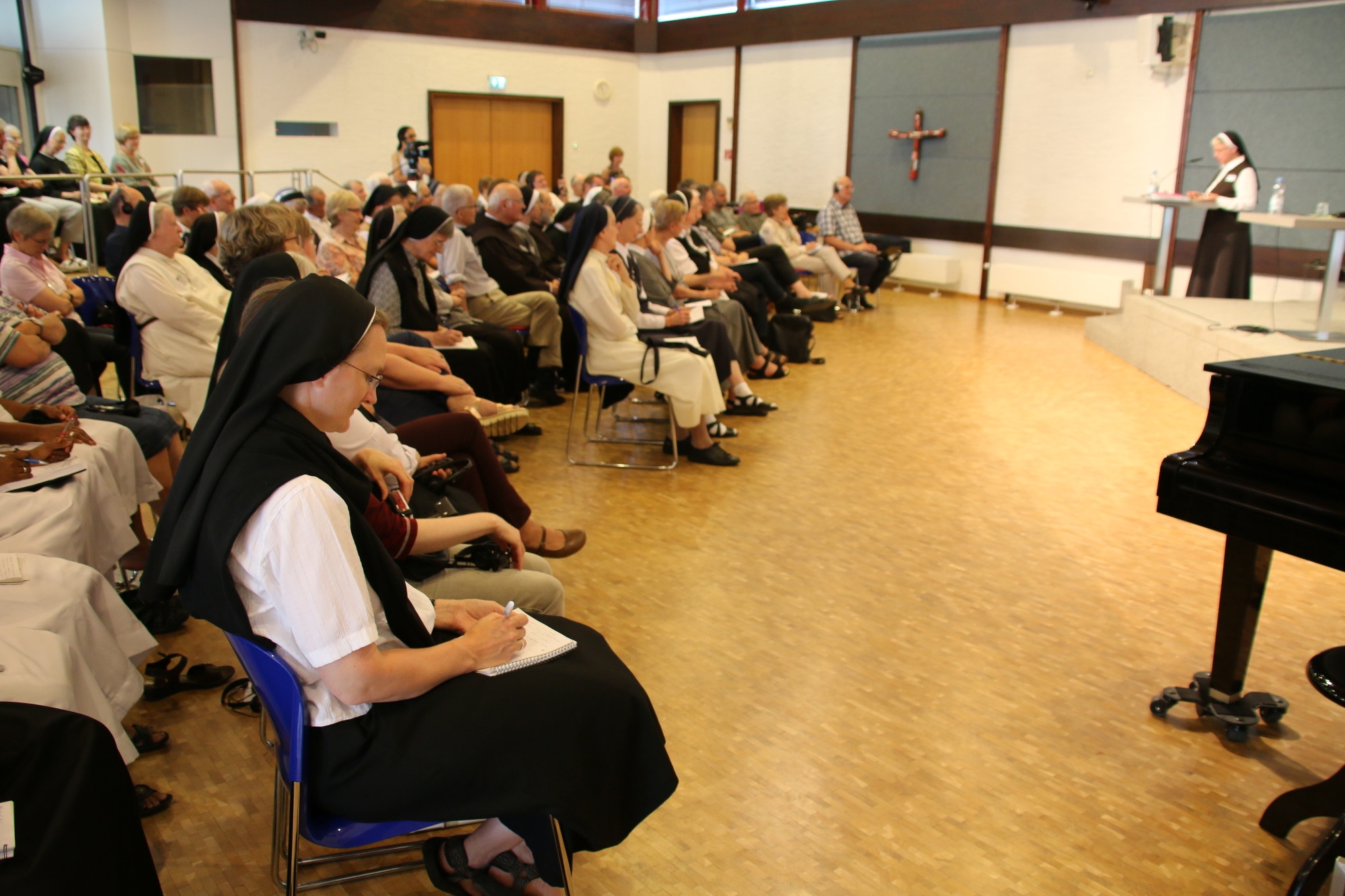
Photo: Ursula Haaf
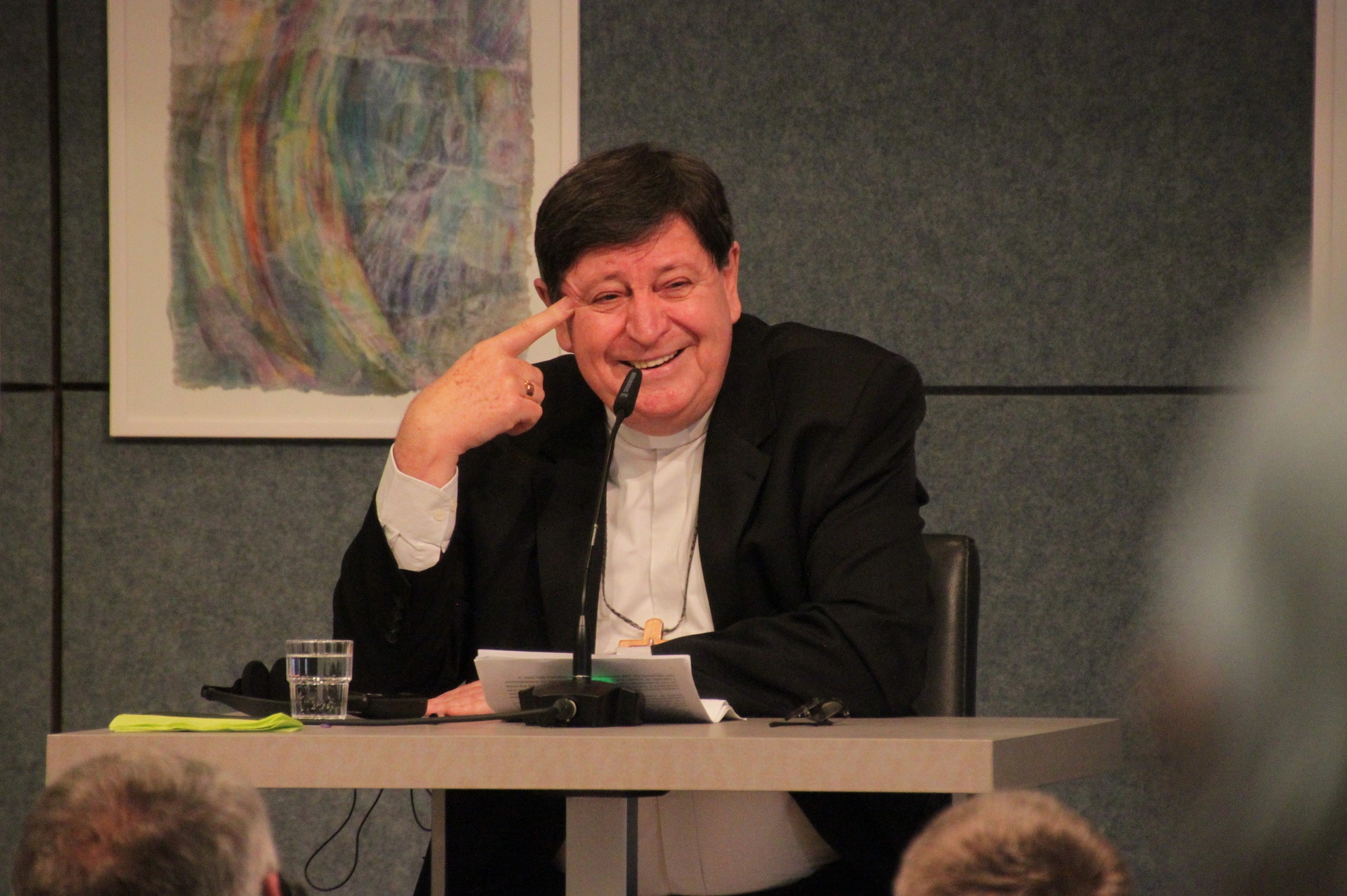
Photo: Maria Kny
Edited by Anna Lisa Innocenti
Sep 6, 2019 | Non categorizzato
Two hundred young people from 67 countries representing all the various youth expressions of the Movement worldwide are gathering together for the first time in Rome: young people belonging to different Churches, some followers of different religions, from a wide variety of different cultures. All have been called together in order to draw up proposals and a shared vision for the next six years. “There’s a new thirst for something challenging and authentic among young people now. We’re very aware of the issues facing today’s world. And we realise that it’s too difficult to do anything about them on our own. We know how to link up with many other young people who want to be agents of change. And we can work together with the older generations too”. So speaks Nicholas, a 27-year-old Italian and Amanda, 29, from Brazil. Both are members of the commission preparing the Focolare Movement’s first international Youth Assembly, taking place at Castel Gandolfo, near Rome, Italy, 10th to 15th September 2019. The idea for this Assembly first emerged in 2017 and has developed since then through numerous pre-Assemblies of youth in various locations around the world. Why this Youth Assembly? “It’s because we feel that ‘we are’ the Focolare Movement. It’s part of us. Many young people had expressed the desire to meet together and talk about issues important to our generation. At the same time, Focolare members older than us were asking how we view the Movement and the specific contribution we as young people can make today to become ever more dedicated to the cause of a united world. We ourselves identified the main topics to be covered by the Assembly. We’ve researched dynamic engaging methods to enable the young people present to express themselves freely while sharing “an experience of God”. Who’s taking part? There will be 200 young people, representing all continents (67 countries): Youth for a United World, young members of the Parish and Diocesan Movements, Seminarians (known as ‘Gens’) belonging to the Focolare Movement and young religious and consecrated men and women in formation (known as ‘GenRe’). So this is an innovative development for the Focolare – to bring together in this Assembly representatives of all the different youth expressions within the Movement. To facilitate the spirit of collaboration, a preparatory commission was formed in November 2018, comprising 15 people from the different youth wings in various parts of the world, most being aged under 30, with just a few older people too. What will be discussed in the Assembly? We thought the best way to ascertain the thoughts and desires of our young people around the world was through a questionnaire. In the preparatory Commission we drew up 4 questions asking young people to describe two characteristics of someone identifying as a young Focolare member; to indicate 2 strong points and 2 things they would like to change in the Movement, giving reasons; to reflect on how to ensure the young people’s voice is heard within the Focolare Movement; to identify priorities for the forthcoming six years. No less than 7,300 responses came in! We felt the weight of responsibility as we collated all this input. From reading it all, we were able to produce a resource for the pre-assemblies around the world, which also nominated their own regional representatives. We then incorporated the feedback from these preliminary meetings into a working document for the main Assembly. It presents proposals, pointers and new perspectives on the international Assembly’s four central themes: formation and accompanying; going outwards; the identity of Focolare youth; the role of Focolare youth as protagonists. Now we’re all ready to be amazed and surprized by our Assembly! It will certainly provide a strong new impetus to go forward towards fulfilling Jesus’ dream: “That all may be one” (John 17:21), as we give our own contribution to the building up of a more united world.
Anna Lisa Innocenti
Sep 4, 2019 | Non categorizzato
The Word of Life for this month, taken from St. Paul’s letter to the Thessalonians, says: “Comfort one another and be of help to one another” (1 Th 5:11). It is simple; we all can understand it and put it into practice, yet it can revolutionize our personal and social relationships. On the bus As I got on the bus to return to the city where I study, I realized that the lady sitting next to me was holding a child covered in skin sores. I felt like changing my place, but I tried to overcome my sense of repugnance. The journey was long; we started talking and I got to know that we were both going to the same place. The lady was going there to seek medical care for her child, but she had neither money nor a place where to stay. She had only the name of a contact person and a lot of hope. We arrived at our destination late at night. I felt I could not leave her alone, so I invited her to come with me and share some space in the room I shared with another student. When we arrived at my place I heard her greeting someone. It was the contact person she had to meet. (M.F. – Brazil) Reconciliation For several years, misunderstandings gradually increased and built a wall between us and some of our relatives. Explanations and attempts of reconciliation, even by others outside the family, proved futile. My husband and I knew that some of our relatives shared our same feelings, so one day we decided to start a chain of prayers to ask for God’s gift of reconciliation. We also involved some friends to pray with us. Yes! Through God’s grace we obtained what did not manage to obtain through so many other attempts during the years: in a few moving minutes both sides decided to bury the past and have a complete change heart. (Giovanna and Franco – Italy) Outside my four walls I was a young girl when together with some friends I rediscovered the meaning of the Gospel. Since then my days acquired a different flavour. Now that I am married and have children, I feel “settled”. I know that I have to renew my choice of God every moment to give him the first place in my life. The moments I share with my husband have become more precious and the daily chores for my children are more constructive. Shopping or listening to a neighbour are no longer a waste of time but opportunities of encounter. The desire for further constant commitment led me to get involved in scholastic organizations and community work in my neighbourhood. I try to be attentive to the needs of people around them, and being open to their needs does not allow me to be confined within my four walls. (Nuccia – Italy) Edited by Chiara Favotti

 What do you think we can expect from this event? I think there will be great leadership by young people both in thought and practice. They will share their ideas about the world, which they are already changing, concerning the environment, the economy, development, poverty. It will not be a conference, but the start of a process, although one with a slow pace that allows us to think and ask ourselves, for example, in St. Francis’ homeland and footsteps, what it means to build a new economy, and who the marginalised of today really are. It will be primarily a moment in which young people draw up a solemn pact with Pope Francis, assuring him of their commitment to change the economy. This will be the heart of the event. After all, young people have clear ideas about… Young people make things interesting. They are the first to react to changes, because they’re the ones who most understand them. There are so many valuable experiences throughout the world in business and start-ups. Young people think about the economy differently, but the adults – who have the power and university chairs – are not able to listen and give them space. Their thinking is 20 years behind the times, while young people have something to say. In Assisi they will be the ones to speak; the adults will make themselves available to support and listen.
What do you think we can expect from this event? I think there will be great leadership by young people both in thought and practice. They will share their ideas about the world, which they are already changing, concerning the environment, the economy, development, poverty. It will not be a conference, but the start of a process, although one with a slow pace that allows us to think and ask ourselves, for example, in St. Francis’ homeland and footsteps, what it means to build a new economy, and who the marginalised of today really are. It will be primarily a moment in which young people draw up a solemn pact with Pope Francis, assuring him of their commitment to change the economy. This will be the heart of the event. After all, young people have clear ideas about… Young people make things interesting. They are the first to react to changes, because they’re the ones who most understand them. There are so many valuable experiences throughout the world in business and start-ups. Young people think about the economy differently, but the adults – who have the power and university chairs – are not able to listen and give them space. Their thinking is 20 years behind the times, while young people have something to say. In Assisi they will be the ones to speak; the adults will make themselves available to support and listen.  Why haven’t the economic recipes that have been put forward to solve the unemployment crisis been working? The data from Eurostat, the European Union’s statistics office, needs to be read with caution: the fact that European unemployment has decreased does not mean that employment has increased. In Italy, for example, there are many people who are no longer searching for work. In addition, people are working less because many contracts are for a smaller number of hours in order to give jobs to more people. Today machines are doing jobs that up until 10 years ago were carried out by people. Robots are our allies, but we need to invent new jobs, because the traditional ones are no longer able to take in enough work. The new tools end up naturally selecting workers, favouring the most competent, since there are less and less people who are able to compete with the machines. This means that less people are working and those who do are the most expert, which creates inequalities. So a social pact is necessary to make sure that everyone has access to paid jobs, creating new types of new jobs. So we need a new approach? In just a few short years we have gone through epochal change at an extraordinary pace. But the way we think and the systems we have change much slower, and this contrast is what causes a crisis. So we need to work more at a cultural, scientific and research level, because – as Pope Francis says – the world suffers from a lack of thinking that is appropriate for today.
Why haven’t the economic recipes that have been put forward to solve the unemployment crisis been working? The data from Eurostat, the European Union’s statistics office, needs to be read with caution: the fact that European unemployment has decreased does not mean that employment has increased. In Italy, for example, there are many people who are no longer searching for work. In addition, people are working less because many contracts are for a smaller number of hours in order to give jobs to more people. Today machines are doing jobs that up until 10 years ago were carried out by people. Robots are our allies, but we need to invent new jobs, because the traditional ones are no longer able to take in enough work. The new tools end up naturally selecting workers, favouring the most competent, since there are less and less people who are able to compete with the machines. This means that less people are working and those who do are the most expert, which creates inequalities. So a social pact is necessary to make sure that everyone has access to paid jobs, creating new types of new jobs. So we need a new approach? In just a few short years we have gone through epochal change at an extraordinary pace. But the way we think and the systems we have change much slower, and this contrast is what causes a crisis. So we need to work more at a cultural, scientific and research level, because – as Pope Francis says – the world suffers from a lack of thinking that is appropriate for today. 

 As the 190 delegates were being introduced to Focolare President Maria Voce and Co-President Jesús Morán, the overwhelming impression was of a parliament for the under-30s, serving not a single nation but the whole world. These young members of the Focolare Movement from 67 different countries have convened in Castel Gandolfo, near Rome, Italy, for the Foocolare’s first Youth Assembly of Gen, young religious men and women, seminarians, together with youth active in the Parish and Diocesan movements of the Focolare. “We’re not only here to organize and plan, but mainly to get to know each other and communicate what is actually motivating us, what’s at the heart of our choice to work towards a more united world,” explained one of the Assembly team.
As the 190 delegates were being introduced to Focolare President Maria Voce and Co-President Jesús Morán, the overwhelming impression was of a parliament for the under-30s, serving not a single nation but the whole world. These young members of the Focolare Movement from 67 different countries have convened in Castel Gandolfo, near Rome, Italy, for the Foocolare’s first Youth Assembly of Gen, young religious men and women, seminarians, together with youth active in the Parish and Diocesan movements of the Focolare. “We’re not only here to organize and plan, but mainly to get to know each other and communicate what is actually motivating us, what’s at the heart of our choice to work towards a more united world,” explained one of the Assembly team.  The delegates are drawn from different geographical, cultural and religious backgrounds. They are active in areas such as justice and peace, disarmament, humane economy, environmental campaigning, dialogue between religions and ethnic groups. Many have been involved in challenging summer projects such as the Gen Congress in Amman, Jordan for young Focolare members in different nations of the Middle East and beyond; another in Oceania; workshops tackling legal and economic inequalities, as well as summer-camps organized by the Parish and Diocesan Movements. The Assembly is designed to promote sharing, learning and planning, drawing on the support of experts. It is distinctly “hands-on”. For example tackling issues of identity and life choices (with Fr Vincenzo Di Pilato); how to be protagonists and effective leaders (with Jonathon Michelon); witnessing and participation (with Sr Alessandra Smerilli). The Catholic Church’s recent synod dedicated to youth led to the popularly-received “Christus Vivit” document, which will also be discussed during the workshops (with Francisco Canzani).
The delegates are drawn from different geographical, cultural and religious backgrounds. They are active in areas such as justice and peace, disarmament, humane economy, environmental campaigning, dialogue between religions and ethnic groups. Many have been involved in challenging summer projects such as the Gen Congress in Amman, Jordan for young Focolare members in different nations of the Middle East and beyond; another in Oceania; workshops tackling legal and economic inequalities, as well as summer-camps organized by the Parish and Diocesan Movements. The Assembly is designed to promote sharing, learning and planning, drawing on the support of experts. It is distinctly “hands-on”. For example tackling issues of identity and life choices (with Fr Vincenzo Di Pilato); how to be protagonists and effective leaders (with Jonathon Michelon); witnessing and participation (with Sr Alessandra Smerilli). The Catholic Church’s recent synod dedicated to youth led to the popularly-received “Christus Vivit” document, which will also be discussed during the workshops (with Francisco Canzani).  To guide all this activity, the Focolare President proposed three key words: unity, courage, communication. Unity – Maria Voce encouraged the young people to “forget” where and what they come from, in order to be able to live complete mutual love and so experience the unity that comes from this. Courage – “I expect you to have such courage. I also expect your courage to test and challenge the rest of us”. Inviting them to speak out and share, she encouraged them not to shy away from making criticisms, but always to express them in “a constructive spirit”. Finally, she urged them to communicate the charism of unity. “You must be prepared to give what you have received to the new generations. This communication can only happen through people who live the spirituality, who want this charism and who then communicate it”. Everything covered during the Assembly will be summarized in a final document containing the contributions and concerns of the young generation of the Focolare as they seek ways of working ever more closely together for their shared goal.
To guide all this activity, the Focolare President proposed three key words: unity, courage, communication. Unity – Maria Voce encouraged the young people to “forget” where and what they come from, in order to be able to live complete mutual love and so experience the unity that comes from this. Courage – “I expect you to have such courage. I also expect your courage to test and challenge the rest of us”. Inviting them to speak out and share, she encouraged them not to shy away from making criticisms, but always to express them in “a constructive spirit”. Finally, she urged them to communicate the charism of unity. “You must be prepared to give what you have received to the new generations. This communication can only happen through people who live the spirituality, who want this charism and who then communicate it”. Everything covered during the Assembly will be summarized in a final document containing the contributions and concerns of the young generation of the Focolare as they seek ways of working ever more closely together for their shared goal. 
 A kind of tsunami has struck the Church as a institution in recent years. The revelation of scandalous abuses has shaken the credibility of the Church to its very core, a Church that for some time has seemed to be in decline in many traditionally Christian countries. And this is not the only scourge afflicting Christian communities across the world. Urbanisation, poverty, war, corruption in society and the Church itself, political and cultural pressures, all kinds of intolerances and religious fundamentalism, a lack of opportunities for development and serious risks to the environment are leaving many people hopeless and overwhelmed. These are just some of the “wounds” that 61 Bishops from four continents who know and live the spirituality of the Focolare shared when they met from 2 to 10 August near Graz in Austria. Even though they came together primarily for a meeting to deepen their spirituality and live fraternity together for a few days, they listened together to the “cry” of their people. Otherwise, how else could they be witnesses of a crucified and risen God who took on every evil and responded to it?! We must not stop at theories – they said – or give in to pessimism but go to the roots. On the Church front, individualism and clericalism were highlighted, a lack of formation and coherent witness, the need for solid spirituality and accompaniment, the need to grow in the capacity to listen and dialogue.
A kind of tsunami has struck the Church as a institution in recent years. The revelation of scandalous abuses has shaken the credibility of the Church to its very core, a Church that for some time has seemed to be in decline in many traditionally Christian countries. And this is not the only scourge afflicting Christian communities across the world. Urbanisation, poverty, war, corruption in society and the Church itself, political and cultural pressures, all kinds of intolerances and religious fundamentalism, a lack of opportunities for development and serious risks to the environment are leaving many people hopeless and overwhelmed. These are just some of the “wounds” that 61 Bishops from four continents who know and live the spirituality of the Focolare shared when they met from 2 to 10 August near Graz in Austria. Even though they came together primarily for a meeting to deepen their spirituality and live fraternity together for a few days, they listened together to the “cry” of their people. Otherwise, how else could they be witnesses of a crucified and risen God who took on every evil and responded to it?! We must not stop at theories – they said – or give in to pessimism but go to the roots. On the Church front, individualism and clericalism were highlighted, a lack of formation and coherent witness, the need for solid spirituality and accompaniment, the need to grow in the capacity to listen and dialogue.  How can we respond to these challenges? Not from above, under the illusion of being able to impose solutions, but from below, following the way of Jesus who, by becoming small, becoming nothing to be a gift, took love to its very limit and in this way generated fraternity. Looking at the situation from this perspective allows us to recognize the potential for good even where, at first glance, there only seems to be evil. This is the path these Bishops want to tread in a decisive way, mindful that it is a matter – as the Apostolic Exhortation “Evangelii gaudium” recommends – of triggering processes that will only start to bear fruit over time. Nothing less is required today: being faithful to its origins, exploring new ways of being Church. With very precise paths, which include basing the proclamation and catechesis on the life of the Gospel and the communion of life; forming people in the spirituality of communion and the ecclesial and social “we”; creating “living environmental cells”; and listening to those who think differently to ourselves. “Show yourselves as a joyful group” was the wish of Pope Francis for this meeting of Bishops who are friends of the Focolare Movement. This is how it was because, by sharing sincerely with each other, they experienced God. Then everything changes at root level. Only by being can an enlightened doing be born.
How can we respond to these challenges? Not from above, under the illusion of being able to impose solutions, but from below, following the way of Jesus who, by becoming small, becoming nothing to be a gift, took love to its very limit and in this way generated fraternity. Looking at the situation from this perspective allows us to recognize the potential for good even where, at first glance, there only seems to be evil. This is the path these Bishops want to tread in a decisive way, mindful that it is a matter – as the Apostolic Exhortation “Evangelii gaudium” recommends – of triggering processes that will only start to bear fruit over time. Nothing less is required today: being faithful to its origins, exploring new ways of being Church. With very precise paths, which include basing the proclamation and catechesis on the life of the Gospel and the communion of life; forming people in the spirituality of communion and the ecclesial and social “we”; creating “living environmental cells”; and listening to those who think differently to ourselves. “Show yourselves as a joyful group” was the wish of Pope Francis for this meeting of Bishops who are friends of the Focolare Movement. This is how it was because, by sharing sincerely with each other, they experienced God. Then everything changes at root level. Only by being can an enlightened doing be born. 

